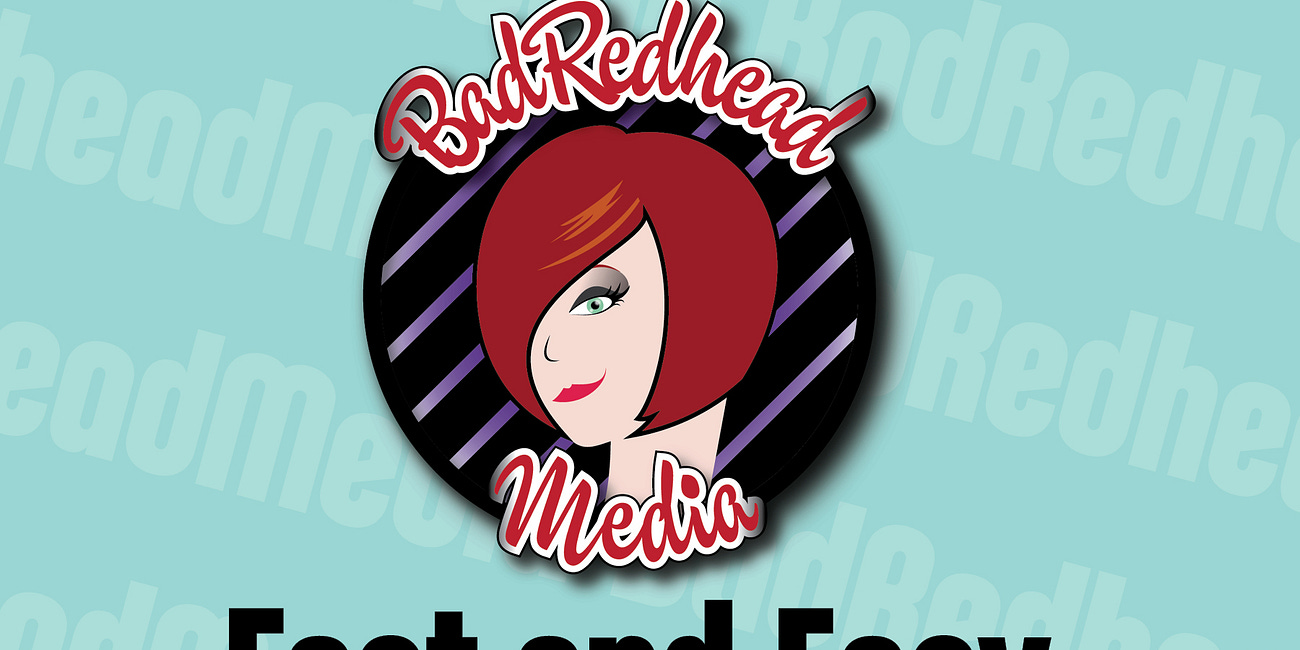How Writers Can Build an Audience Via Blogging (Without Burning Out)
What to post, how to post, and how to turn blog traffic into book sales!

Let’s be honest: most writers didn’t become writers because they love marketing. The idea of starting a blog feels like adding yet another thing to your already overflowing plate, especially when book sales aren’t guaranteed via this effort.
But when you approach blogging as an extension of your writing, not a marketing chore, it can become one of your most strategic tools to build your audience, sell more books, and let readers find you.
💥 Shout-out to my exclusive advertising sponsor, the always-free Booklinker (universal book links—so helpful!), and the paid tool, GeniusLinks. I love both💥 (affiliate link).
And unlike social media, which can vanish in 48 hours (or less), your blog keeps working for you long after you hit “publish.”
Google loves fresh, helpful, value-added, and optimized content. Readers who discover you through search can stick around for years.
So let’s talk about how you can blog as a writer without burning out. Keep in mind, blogging is all about visibility within the Internet of Things. Indexing is crucial.
Why blogging still works for authors
Blogging isn’t dead. It’s just shifted. Instead of throwing random content at the wall, you’re writing for your ideal reader. You’re giving people a reason to care about you, your books, and your world.
Let’s say you write WWII historical fiction. You could:
Share little-known stories from that time,
Behind-the-scenes research,
Or dive into the real people who inspired your characters.
If you write cozy mysteries, consider sharing recipes your characters would cook or showcasing what inspired the small town where your stories take place.
💥 You’re not trying to sell with every post. You’re building trust. You’re showing readers who you are and giving them a reason to stick around.
What should writers blog about?
The biggest question I hear from authors is: "What do I write about?"
The good news? You’re already sitting on tons of material. Your writing journey, research, mistakes, and lessons learned, plus some personal stuff (travel, cooking, pets), are all gold. All those are great blog topics.
❓What are you good at?
❓What do you wish people knew more about?
❓What do you want to get better at?
Readers love your:
Behind-the-scenes stories
Research rabbit holes
Writing process (and struggles)
Book recommendations
Personal journey to publishing
Think about the questions readers or other writers often ask you. That’s your content. (In fact, I’m writing this post in response to a lovely writer who has never blogged before.)
Example: Let’s say you write historical romance, and created a blog series called "What they got wrong in Bridgerton." It will attract readers who love the time period and the show, and eventually turn them into newsletter subscribers and book buyers, thanks to numerous interactive conversations.
How to keep SEO simple (and not scary)
SEO (search engine optimization) is what helps Google find your blog. But don’t panic. You don’t need to become an SEO expert overnight.
Start by thinking about what your ideal reader would type into Google or other search engines. That’s your keyword(s) or key phrase(s).
For example:
"WWII facts for historical fiction readers"
"How to write strong female characters"
"Best cozy mystery books 2025"
Use that keyword naturally in your headline, opening paragraph, subheadings, and a few times throughout the post. Aim for 1,000 words, so Google has enough to work with.
Tip: Longer format posts rank higher than short posts. That said, the content must be ‘value-added,’ e.g., not constant promotion.
You can use free tools like Ubersuggest, Answer the Public, and Keywords Everywhere to help you brainstorm what people are searching for.
You’re still writing for real humans first. Just keep Google in mind as your “bonus” reader.
Read more about learning how to SEO your blog posts here, and more about branding and keywords here ⬇️
What's Author Branding, Anyway?
If you’re like most writers (including yours truly, back before I published my first book ten years ago), branding sounds scary and kind of, well, nebulous.
How often should you blog?
Consistency matters more than frequency. You don’t need to blog every day or even weekly to see results.
Start with one post per month. That’s enough to build a library of helpful content over time without burning out. You can easily repurpose those blog posts into newsletter content and social media posts, so you’re not constantly starting from scratch.
10 blog post ideas to get you started
Need inspiration? Here are ten blog post titles you can steal, tweak, and make your own:
10 surprising facts I discovered while researching [your topic]
How I got my first book deal (and what I’d do differently now)
The five biggest writing mistakes I made (so you don’t have to)
Behind the scenes: how I build my characters in [your genre]
How to write believable [historical periods, fantasy worlds, police procedures, etc.]
Why I almost gave up on writing, and how I kept going
7 books that inspired me to write [your book]
What readers don’t see: how much research goes into writing [your genre]
My best tips for balancing writing, publishing, and real life
What I wish I knew before publishing my first book
A simple 90-day blogging plan for writers
Here’s how you can build momentum quickly without overwhelm:
Month 1:
Tell your origin story: why you write and how you got here. Then write a research-based post tied to your book’s topic or setting. Share both on your newsletter and social media.
Example: I have a client who wrote a YA book based on Narrative Therapy, so he shares what that is, how it works, and weaves how he uses that concept in his novel. Learn more here from R.A.Ruegg.
Month 2:
Answer a question you often get from readers. Then share a behind-the-scenes post about your writing process. In each post, include a simple call-to-action like “join my newsletter” or “check out my book.”
Example: Share what you love about the genre you write in (be more specific than fiction or nonfiction), with a snippet from your book to illustrate. Learn more here from Jeff Burgess.
Month 3:
Write a book list related to your genre or topic. Then share one of your biggest writing mistakes or lessons learned. Go back and update earlier posts with links to your new posts (Google loves internal linking).
By the end of 90 days, you’ll have six strong posts generating traffic, newsletter sign-ups, and increased visibility. See an example here ⬇️
Boost Your Writing Skills with These Essential 25 Books!
Get strapped in, writers. These books are a goldmine.
Your quick SEO checklist
Here’s your simple checklist for every post:
Pick one or two keywords that your readers are searching for
Use it in your headline and first paragraph
Sprinkle it naturally into subheadings and body text
Aim for at least 1,000 words
Link to your books, newsletter, or other posts
Link to a few trusted outside sources
Rename your image files using keywords and add alt text
Use a plugin like Yoast (for WordPress) to guide you
Write an SEO title and meta description before you publish
Share your post everywhere once it’s live
Helpful tools to make blogging easier

You don’t need a huge tech stack to start blogging.
For your platform, you can use WordPress, Squarespace, or Substack. Canva is fantastic for making graphics, Grammarly helps you polish your posts, and SEO plugins like Yoast or RankMath can guide your optimization.
And yes, AI tools like ChatGPT can help brainstorm post ideas, outlines, and headlines. Just make sure your voice shines through in the final post so you don’t sound like a robot!
Which is better - blogging on your site or writing newsletters here? Find out ⬇️
Which Book Marketing Tactic Wins: Blogs or Newsletters? You May Be Surprised!
In case you missed it the first time!
One last word of encouragement
Your blog is your digital home. Unlike social media, you own it. You control it. And when you approach blogging like you're simply writing to your readers, sharing stories, insights, and value, it becomes one of your most powerful long-term platforms.
Small, consistent steps will get you further than one giant push. This isn’t about going viral. It’s about being findable. And trust me, it works.
Help For You
I don’t do a ton of ‘self-promotion,’ especially here, but several writers have asked where to purchase my books, which I wrote especially for authors. Below are the links to buy them.
Reading Now:
Several excellent books have been released recently - all great!
• J. Herman Kleiger’s Whispers, his third novel of psychological suspense, was just released. It’s fantastic. Learn more here. Psychological fiction.
• Adam Aresty’s Skyboy is also out now. If you’re a sci-fi nerd like me, you’ll love it. Adam is a professional screenwriter and professor at Fordham University in NYC. This book is the first in a fascinating new series. YA, Sci-Fi, Tech, Adventure - it’s all in there.
His website is super cool. You can even submit your own invention—click to learn more. It's so fun. (I submitted Robo-Cat. I mean.)
• R.A. Ruegg’s The Making of BRIO McPRIDE: The Curious Incident of the Dog in the Night-Time meets Life of Pi is one of my favorite reads this year. The book inspired two films! YA/NA fiction, psychological, literary.
• Jeff Burgess’ 𝙄𝙩 𝙒𝙤𝙧𝙠𝙚𝙙 𝙁𝙤𝙧 𝙈𝙚: 𝙈𝙮 𝙇𝙞𝙛𝙚 𝙎𝙚𝙞𝙯𝙞𝙣𝙜 𝙊𝙥𝙥𝙤𝙧𝙩𝙪𝙣𝙞𝙩𝙮 𝙖𝙣𝙙 𝘽𝙪𝙞𝙡𝙙𝙞𝙣𝙜 𝙎𝙪𝙘𝙘𝙚𝙨𝙨 is a fantastic business memoir with many insights and a lot of humor. And…100% of the royalties go to the Wounded Warrior Project! A worthy purchase. Business memoir.
Happy writing! 🌞
If you found this helpful, share it with a writer friend or leave a comment below — I’d love to hear what YOUR favorite everyday blogging tip is!






Good advice, but (there is always a but, isn’t there?) I write very short later in life romance. No behind the scenes available. No research needed. I just write a few hours and the story is finished. I never give up or wanted to give up. I am not the kind of writer who procrastinates or has low self esteem or what not else readers might relate to. I am 61 myself but as a person do not fit into any of the stereotype boxes people put women my age on autopilot. And I never started a blog because it would reduce my hours to live my life outside of writing. And sorry not sorry, but I simply don’t believe anyone reads blog posts nowadays when we are already overwhelmed by all the newsletters in our inbox that no one reads anyway and that contain exactly that content.
Thank you for the very practical advice! After reading your Substack and a few others I finally decided to start posting here, too. I am sharing what I learn as I draft my first novel, hoping it will help others trying to do the same. Just last night I was looking ahead thinking "drafting takes a hot minute...I'm going to run out of things to share!" Bing! BadRedhead to the rescue! 😄